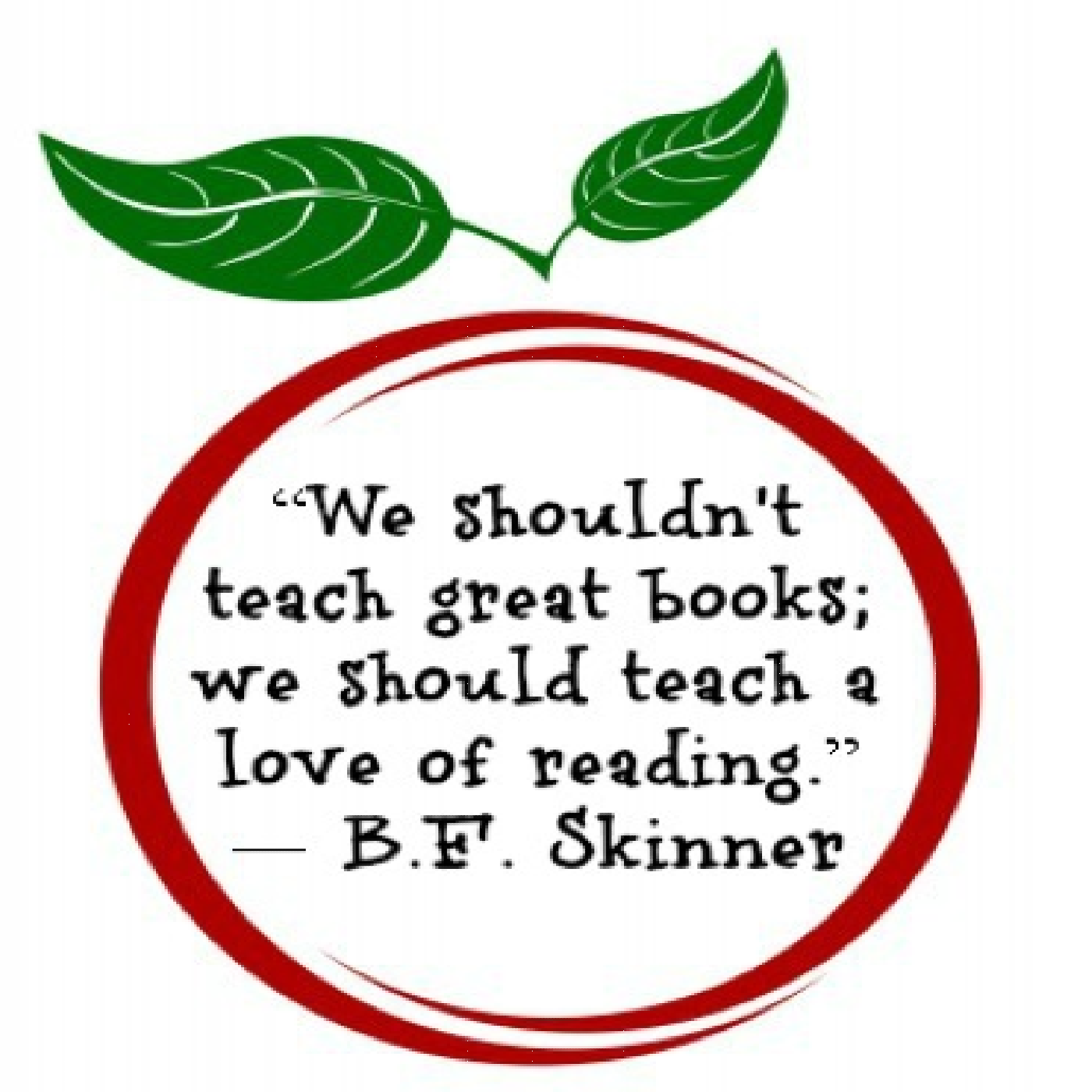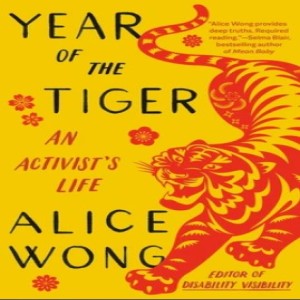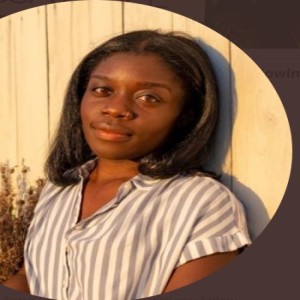
29.6K
Downloads
338
Episodes
The Chills at Will Podcast is a celebration of the visceral beauty of literature. This beauty will be examined through close reads of phrases and lines and passages from fiction and nonfiction that thrills the reader, so much so that he wants to read again and again to replicate that thrill. Each episode will focus on a different theme, such as "The Power of Flashback," "Understatement," "Cats in the Cradle," and "Chills at Will: Origin Story."
Episodes

Tuesday Nov 29, 2022
Tuesday Nov 29, 2022
Episode 154 Notes and Links to Ian MacAllen’s Work
On Episode 154 of The Chills at Will Podcast, Pete welcomes Ian MacAllen, and the two mainly discuss topics and themes revolving around his book, Red Sauce: How Italian Food Became American. They talk about, among other things, parallels between Italian immigration patterns and Italian-American food, the evolution of Italian food from “exotic” and “foreign” to an American staple, red sauce in its many iterations as emblematic of this evolution, and slippery notions of “authenticity.”
Ian MacAllen is the author of Red Sauce: How Italian Food Became American, (Rowman & Littlefield, April 2022). He is a writer, editor, and graphic designer living in Brooklyn. He is Art Director at The Rumpus, a contributor at America Domani and The Chicago Review of Books, and a member of The National Book Critics Circle. His writing has appeared in Chicago Review of Books, Southern Review of Books, The Offing, 45th Parallel Magazine, Little Fiction, Vol 1. Brooklyn, and elsewhere. He tweets @IANMACALLEN and is online at IANMACALLEN.COM.
Buy Red Sauce: How Italian Food Became American
“Power Ballin’: How Italian Food Became American” From America Domani, November, 2022
At about 7:10, Pete and Ian do the requisite Italian-American thing of comparing family last names
At about 9:50, Ian recounts stories from his visit to his family’s hometown in Bagnoli del Trigno, Molise, Italy
At about 11:45, Ian transitions into speaking of the slippery term, “authenticity,” especially with regards to Italian and Italian-American cuisine
At about 14:20, Pete references Gustavo Arellano’s iconic Taco USA: How Mexican Food Conquered the US, and Ian mentions his recent read-the “fascinating” American Tacos: A History and Guide, by José Ralat
At about 17:00, Pete and Ian talk about al pastor tacos and their history as a microcosm of fusion
At about 17:50, Ian details his early reading and writing and inspirations, including “single-topic food books,” such as Mark Kurlansky’s Salt
At about 19:50, Ian cites John Mariani’s How Italian Food Conquered the World and its influence on him and the ways in which its focus differs from Ian’s with his book; Ian furthers expands upon his book’s philosophy
At about 22:40, The two discuss ideas of “pan-Italian” food and Molise as representative of regional dishes and the slipperiness of nailing down a dish’s origins
At about 26:50, Pete cites the commingling of spaghetti and meatballs through an accident involving Rudolph Valentino, and Pete and Ian cite regional sauce and polpette recipes from their family’s Italian roots
At about 31:35, Ian gives history on marketing “Italian food” in the days of heavy Italian immigration and highlights the relative newness of Italy as a unified country
At about 32:40, Ian discusses ideas of Italian food and its initial stereotyping as “foreign” and “dirty,” as well as later ways in which Italian food-spaghetti-was used as a paragon of “becoming American”
At about 35:20, Ian relates the telling story of his mother’s interactions with her future mother-in-law and its implications about Italian food and its “integra[tion] into American culture” and the “golden age of Italian food” in the US post WWII
At about 38:50, Ira Nevin and his gas-fired oven are referenced as evidence of the convenience culture’s influence on pizza and other Italian-American foods
At about 42:20, Pete and Ian discuss Ian’s book’s opening regarding some iconic scenes with Paulie Walnuts from The Sopranos, and this leads to Ian giving background on the fiery “sauce” vs. “gravy” debate
At about 45:35, Ian uses Stanley Tucci’s life experiences as an example of the changes in the ways Italian food has been viewed by the American culture as a whole
At about 46:55, Ian discusses Starboard and Olive Garden, in a business dispute, and how the saga is emblematic of the slippery and sometimes-backward ideas of “authenticity”
At about 49:35, Ian discusses authenticity in terms of associazioni in Italy and beyond that certify pizza, and issues inherent
At about 51:30, Ian talks about “the end of the red sauce era” and the “evolution” of Italian food in America with regards to pasta primavera, alfredo, etc.
At about 54:25, Pete highlights the book’s tracing the history of Italians and Italian-América foods and cucina povera and cucina ricci, leading to a fairly-recent embrace of Northern Italian food as more “authentic”
At about 58:00, Ian references penne alla vodka in Italy and Jennifer Lee’s Fortune Cookie Chronicles in talking about foods from the “old country” being Americanized and then exported back to the homeland
At about 59:50, Lidia Bastanivich and Marcella Hazan’s influences and their cooking connections to American food are cited
At about 1:01:00, Pete reads a probable thesis sentence from the book as the two discuss the “bounty” that awaited Italians upon immigration and the effects on their diets
At about 1:05:00, Ian cites the recent unification of Italy around the time of much immigration and how language/dialect barriers affected cookbooks and books on food
At about 1:07:45, Ian highlights East End Books, Bookshop.org, and I am Books as good places to buy his book
At about 1:09:10, Ian discusses a fun experience in selecting the book’s cover
You can now subscribe to the podcast on Apple Podcasts, and leave me a five-star review. You can also ask for the podcast by name using Alexa, and find the pod on Stitcher, Spotify, and on Amazon Music. Follow me on IG, where I’m @chillsatwillpodcast, or on Twitter, where I’m @chillsatwillpo1. You can watch other episodes on YouTube-watch and subscribe to The Chills at Will Podcast Channel. Please subscribe to both my YouTube Channel and my podcast while you’re checking out this episode.
Sign up now for The Chills at Will Podcast Patreon: it can be found at patreon.com/chillsatwillpodcastpeterriehl
Check out the page that describes the benefits of a Patreon membership, including cool swag and bonus episodes. Thanks in advance for supporting my one-man show, my DIY podcast and my extensive reading, research, editing, and promoting to keep this independent podcast pumping out high-quality content!
This is a passion project of mine, a DIY operation, and I’d love for your help in promoting what I’m convinced is a unique and spirited look at an often-ignored art form.
The intro song for The Chills at Will Podcast is “Wind Down” (Instrumental Version), and the other song played on this episode was “Hoops” (Instrumental)” by Matt Weidauer, and both songs are used through ArchesAudio.com.
Please tune in for Episode 155 with Robert Jones, Jr., the New York Times-bestselling author of The Prophets and finalist for the 2021 National Book Award for Fiction. He has written for numerous publications, including the New York Times, Essence, and The Paris Review, and he is the creator and curator of the social-justice, social-media community Son of Baldwin
The episode will air on December 6.

Monday Nov 21, 2022
Monday Nov 21, 2022
Episode 153 Notes and Links to Luivette Resto’s Work
On Episode 153 of The Chills at Will Podcast, Pete welcomes Luivette Resto, and the two discuss, among other topics, her childhood in Puerto Rico and the Bronx, her pride in her Puerto Ricanidad, Spanglish, formative reading and writing, mentors and inspirations like Helena Maria Viramontes, ideas of home and identity and inheritance that populate her poetry, and how form and family dynamics inform her work.
Luivette Resto, a mother, teacher, poet, and Wonder Woman fanatic, was born in Aguas Buenas, Puerto Rico but proudly raised in the Bronx. She is a CantoMundo and Macondo Fellow, and a Pushcart Prize nominee. She is on the Board of Directors for Women Who Submit, a non profit organization in Los Angeles focused on women and nonbinary writers. Some of her latest work can be read on Spillway, North American Review, and the latest anthology, Gathering.
Her latest collection Living On Islands Not Found On Maps is published by FlowerSong Press. Her first two books of poetry Unfinished Portrait and Ascension have been published by Tía Chucha Press.
Some of her latest work can be found in the anthology titled What Saves Us: Poems of Empathy and Outrage in the Age of Trump edited by Martín Espada and on the University of Arizona’s Poetry Center website. She lives in the San Gabriel Valley with her three children aka her revolutionaries.
Buy Living on Islands Not Found on Maps
“Becoming Guazabara: A Interview with Luivette Resto” by Ivelisse Rodríguez
Luivette Resto’s Poetry Foundation Page
At about 7:50, Luivette gives background on her early and lasting connections to her birthplace of Puerto Rico and to the Bronx
At about 12:40, Luivette describes her growing understanding of hyphenated identities and being part of the “Nuyorican culture”
At about 16:45, Luivette lists some of the countless books she read as a kid
At about 19:10, Luivette looks back on the dearth of writers of color to whom she was exposed as a kid and high schooler
At about 20:15, Luivette describes Mrs. Quigley jostl[ing] some things” as Luivette
At about 21:00, Luivette describes the wonderful and creative leadership and mentorship provided by Helena Maria Viramontes
At about 22:40, Luivette cites Viramontes’ leading Luivette to great Puerto Rican writers like Martin Espada and Judith Ortiz Cofer (Latin Deli)
At about 24:30, Luivette references a few words that are particular to Puerto Rico that Martin Espada uses in his work that thrilled her
At about 26:50, Pete tells the story about a banal and thrilling experience with Helena Maria Viramontes
At about 28:00, Luivette responds to Pete’s questions about transformational moments along the way to becoming a writer-she cites Helena Maria Viramontes’ influence
At about 31:50, Luivette shouts out Martin Espada (read Floaters!) and Pedro Pietri and as two of the many writers who inspire her
At about 35:00, Pete and Luivette talk about precision with words and discuss Luivette’s philosophy on poetry and how she is a poet on a daily basis
At about 38:30, Luivette gives the seeds and background for her collection, which was “seven years in the making”
At about 41:15, The two discuss the continuity of the collection
At about 42:20, Luivette summarizes themes of Parts I and II in the collection and gives background on the process of splitting up the collection
At about 45:25, The two discuss the collection’s opening poem and ideas of the poet as speaker and connections to the ocean and the protectoress, as well as the forms of pantoum and her “Didactic” poems
At about 50:40, Pete cites the masculine and feminine natures of the sea, as posed by Hemingway’s Santiago
At about 51:45, Inheritance is explored through some early poems in the collection and real-life connections to Luivette’s mother and grandmother
At about 57:55, Ideas of home and personality that come up in a few poems are referenced and discussed
At about 59:40, Pete compliments the “fresh spin” that Luivette puts on ideas of sexism and misogyny
At about 1:00:50, Luivette reads her poem “MILF”
At about 1:02:00, Luivette connects ideas of home and father-daughter relationships with some of her work
At about 1:04:00, Ideas of potential and hope and a lifesaving experience dramatized in Luivette’s work are discussed
At about 1:05:35, Home and identity and languages as themes are discussed
At about 1:06:45, Luivette provides background on the writing of the title poem with help from Diana Marie Delgado
At about 1:10:00, Pete cites some standout lines from the collection’s second part, especially those revolving around intimacy and love and loss
At about 1:12:20, Highlighting misogyny and ideas of the power of women as depicted in the poetry, Pete asks Luivette about the cool double-meaning of “coqueta”
At about 1:13:50, Luivette reads the title poem
You can now subscribe to the podcast on Apple Podcasts, and leave me a five-star review. You can also ask for the podcast by name using Alexa, and find the pod on Stitcher, Spotify, and on Amazon Music. Follow me on IG, where I’m @chillsatwillpodcast, or on Twitter, where I’m @chillsatwillpo1. You can watch other episodes on YouTube-watch and subscribe to The Chills at Will Podcast Channel. Please subscribe to both my YouTube Channel and my podcast while you’re checking out this episode.
Sign up now for The Chills at Will Podcast Patreon: it can be found at patreon.com/chillsatwillpodcastpeterriehl
Check out the page that describes the benefits of a Patreon membership, including cool swag and bonus episodes. Thanks in advance for supporting my one-man show, my DIY podcast and my extensive reading, research, editing, and promoting to keep this independent podcast pumping out high-quality content!
This is a passion project of mine, a DIY operation, and I’d love for your help in promoting what I’m convinced is a unique and spirited look at an often-ignored art form.
The intro song for The Chills at Will Podcast is “Wind Down” (Instrumental Version), and the other song played on this episode was “Hoops” (Instrumental)” by Matt Weidauer, and both songs are used through ArchesAudio.com.
Please tune in for Episode 154 with Ian MacAllen, the author of Red Sauce: How Italian Food Became American. He is a writer, editor, and graphic designer living in Brooklyn. Pete can’t wait to talk sauce and gravy and sugo.
The episode will air on November 29.

Monday Nov 14, 2022
Monday Nov 14, 2022
Episode 152 Notes and Links to Tommy Dean’s Work
On Episode 152 of The Chills at Will Podcast, Pete welcomes Tommy Dean, and the two discuss, among other topics, his reading trajectory which started with sports biographies and has branched out in many directions, his start writing in undergrad, his views of flash fiction vs. short shorts, the craft of writing flash fiction, Tommy’s recurring themes and development as a writer, and inspiring works by Tobias Wolff and other titans of the trade.
Tommy Dean lives in Indiana with his wife and two children. He is the author of a flash fiction chapbook entitled Special Like the People on TV from Redbird Chapbooks. He is the Editor at Fractured Lit. He has been previously published in the BULL Magazine, The MacGuffin, The Lascaux Review, New World Writing, Pithead Chapel, and New Flash Fiction Review. His story “You’ve Stopped” was chosen by Dan Chaon to be included in Best Microfiction 2019. It will also be included in Best Small Fiction 2019.
His interviews have been previously published in New Flash Fiction Review, The Rumpus, CRAFT Literary, and The Town Crier (The Puritan). Find him @TommyDeanWriter on Twitter.
A.E. Weisberger Reviews Special Like the People on TV
“Past Lives” Story from Atlas and Alice Magazine-2020
“You’ve Stopped” from Pithead Chapel
2017 Mini-Interview with Megan Giddings
At about 7:30, Tommy discusses her early reading (a lot of sports and biographies and horror and “heavy genre”) and writing, with the writing mostly coming after undergrad
At about 10:00, the two discuss character as seen in these shared sports biographies
At about 11:30, Tommy describes his love for the library and its easy access to Sports Illustrated/SI for Kids
At about 12:30, Tommy and Pete discuss their shared loves for basketball and baseball, the former especially
At about 14:25, Tommy gives background on how he came to become interested in flash fiction/short shorts
At about 17:20, Tommy responds to Pete’s questions about how he has honed his craft
At about 19:00, Tommy describes what it is about flash fiction that appeals to him
At about 19:50, Tommy differentiates between “flash fiction” and “short short”
At about 22:50, Tommy gives some of the formative texts, literary journals (like SmokeLong Quarterly and Vestal Review) and writers that are classics of the flash fiction forms, like Stuart Dybek, Dan Chaon, Robin Black and “Pine,” and Elizabeth Tallent and her story, “No One’s a Mystery”
At about 27:00, Pete recounts the connections between the podcast title and Tobias Wolff’s “Bullet in the Brain”
At about 28:30, Tommy discusses the power of flash in its granularity
At about 29:30, The two discuss Hemingway and his “interludes” or works that could be classified as “flash”; they also discuss breaking convention
At about 34:20, Pete corrects himself on the pivotal line that inspired the podcast title
At about 35:10, Pete cites a powerful use of understatement from Elie Wiesel’s Night
At about 36:30, Tommy talks about how teaching/editing inform his writing, and vice versa
At about 42:35, Pete quotes interviews with Tommy and Megan Giddings and talks about his “lifejackets” as character
At about 44:00, Pete references powerful opening lines from Tommy and asks about the connections between title and subject matter; Tommy talks about work that became awarded and his process
At about 45:35, Tommy talks about his philosophy of dialogue in flash fiction
At about 47:15, Tommy explains conscious choices in using quotation marks or not
At about 48:30, Pete and Tommy discuss the idea that dialogue to begin a story is fraught; Pete provides an example of a short he wrote that
At about 52:15, Pete highlights a stunning open line from “Past Lives”; Tommy gives real-life connections to the story before reading it
At about 55:45, Tommy describes an “in” for writers involving unique characters
At about 56:45, Tommy talks about his two chapbooks
At about 57:15, Pete reads a review from the first collection and talks about themes of childlessness and craft shared by Hemingway’s “Hills Like White Elephants” and Tommy’s early writing
At about 59:15, Tommy responds to Pete’s questions about development as a writer between his first and most recent collections; he traces his development via “cuts” and themes used
At about 1:03:20, Pete shares a reader’s review of Tommy’s Hollows and Tommy discusses why he appreciates these particular sentiments
At about 1:05:25, Tommy reads “Baby Alone”
At about 1:14:30, Tommy gives out his social media and contact info, including Alternate Currents and ELJ Editions
You can now subscribe to the podcast on Apple Podcasts, and leave me a five-star review. You can also ask for the podcast by name using Alexa, and find the pod on Stitcher, Spotify, and on Amazon Music. Follow me on IG, where I’m @chillsatwillpodcast, or on Twitter, where I’m @chillsatwillpo1. You can watch other episodes on YouTube-watch and subscribe to The Chills at Will Podcast Channel. Please subscribe to both my YouTube Channel and my podcast while you’re checking out this episode.
Sign up now for The Chills at Will Podcast Patreon: it can be found at patreon.com/chillsatwillpodcastpeterriehl
Check out the page that describes the benefits of a Patreon membership, including cool swag and bonus episodes. Thanks in advance for supporting my one-man show, my DIY podcast and my extensive reading, research, editing, and promoting to keep this independent podcast pumping out high-quality content!
This is a passion project of mine, a DIY operation, and I’d love for your help in promoting what I’m convinced is a unique and spirited look at an often-ignored art form.
The intro song for The Chills at Will Podcast is “Wind Down” (Instrumental Version), and the other song played on this episode was “Hoops” (Instrumental)” by Matt Weidauer, and both songs are used through ArchesAudio.com.
Please tune in for Episode 153 with Luivette Resto, a mother, teacher, poet, and Wonder Woman fanatic born in Aguas Buenas, Puerto Rico, and proudly raised in the Bronx. A CantoMundo and Macondo Fellow, and Pushcart Prize nominee, she is on the Board of Directors for Women Who Submit.
The episode will air on November 22.

Monday Nov 07, 2022
Monday Nov 07, 2022
Episode 151 Notes and Links to Allison Hedge Coke’s Work
On Episode 151 of The Chills at Will Podcast, Pete welcomes Allison Hedge Coke, and the two discuss, among other topics, her multiracial and multiethnic and multilingual upbringing, wise words and inspiration from her family, her life of art and creativity, California as her muse, holding California to account, ideas of stewardship and environmental care, and the incredible inspirations and circumstances that brought her award-winning poetry to the world.
Allison Adelle Hedge Coke's previous poetry books include The Year of the Rat, Dog Road Woman, Off-Season City Pipe, Blood Run, Burn, Streaming as well as a memoir, Rock Ghost, Willow, Deer. She is the editor of the anthologies Sing: Poetry of the Indigenous Americas, Effigies, Effigies II, and Effigies II and is a Distinguished Professor at the University of California, Riverside. Hedge Coke came of age working fields, factories, and waters and is currently at work on a film, Red Dust: resiliency in the dirty thirties, a new CD, and new poems.
Allison Hedge Coke's Wikipedia Page
National Book Awards Description for Look at This Blue
At about 7:30, Allison discusses her busy and exciting upcoming weeks that include a Georgia poetry circuit and the National Book Awards, where she’s nominated for
At about 9:20, Allison discusses her experiences with languages and reading and writing as a kid; she discusses her father’s and family’s great pride in their lineages
At about 13:45, Allison relays a telling anecdote about her son and his crayons that speaks to the multilingual extended family from which she comes
At about 16:20, Pete reads from the beginning chapter of Allison’s memoir and Allison expands on lessons learned from those times and from her mother and father
At about 18:50, Pete notes Allison lifelong devotion to art, and she talks about her family’s background and about what it means to create for her in her traditions
At about 20:25, Allison recounts the amazing story of writing Look at this Blue in Montenegro in a stunningly short period of time
At about 22:00, Allison describes her first encounters with California in 1980 and then future time spent in CA
At about 26:05, Pete cites the wonderful blurbs from wonderful writers for Allison’s collection; she defines it as an “assemblage” and talks about the assemblage in connection to jazz and other music
At about 28:00, Pete and Allison discuss the poetry’s connection to “blue,” and blue’s myriad meanings and connection to longing and fado and saudade (Pete’s obsession)
At about 30:40, Pete shares the possibly apocryphal story of Garcia Marquez’s writing a masterpiece
At about 31:00, Allison expands upon the title’s meanings
At about 31:45, Allison responds to Pete wondering about “catharsis” upon writing about such personal and emotional work
At about 34:00, The two meditate on parenthood and influences on children
At about 36:00, The two discuss memory and perspective, and Pete cites the book’s epigraph
At about 37:10, Pete provides a book summary and details the historical and personal
At about 38:15, Allison reads from the book regarding the Xerces blue butterfly and links its story to that of California and its abuses, excesses, and displacement
At about 43:00, Allison reads from the Prelude
At about 45:45, Allison recounts a bonkers story (adapted for the book) about the INS and her mother
At about 48:30, The two talk about extinctions, displacements, and endangerment featured in the book
At about 51:40, Allison talks about being stewards for the environment
At about 53:15, The two detail connections made in the book to events both historical and modern and themes like racism and homophobia
At about 54:20, Pete discusses “let” and “love” as depicted in the book
You can now subscribe to the podcast on Apple Podcasts, and leave me a five-star review. You can also ask for the podcast by name using Alexa, and find the pod on Stitcher, Spotify, and on Amazon Music. Follow me on IG, where I’m @chillsatwillpodcast, or on Twitter, where I’m @chillsatwillpo1. You can watch other episodes on YouTube-watch and subscribe to The Chills at Will Podcast Channel. Please subscribe to both my YouTube Channel and my podcast while you’re checking out this episode.
Sign up now for The Chills at Will Podcast Patreon: it can be found at patreon.com/chillsatwillpodcastpeterriehl
Check out the page that describes the benefits of a Patreon membership, including cool swag and bonus episodes. Thanks in advance for supporting my one-man show, my DIY podcast and my extensive reading, research, editing, and promoting to keep this independent podcast pumping out high-quality content!
This is a passion project of mine, a DIY operation, and I’d love for your help in promoting what I’m convinced is a unique and spirited look at an often-ignored art form.
The intro song for The Chills at Will Podcast is “Wind Down” (Instrumental Version), and the other song played on this episode was “Hoops” (Instrumental)” by Matt Weidauer, and both songs are used through ArchesAudio.com.
Please tune in for Episode 152 with Tommy Dean, author of a flash fiction chapbook, Special Like the People on TV from and the Editor at Fractured Lit; “You’ve Stopped” was included in Best Microfiction 2019.
The episode with this flash fiction writer extraordinaire will air on November 15.

Thursday Nov 03, 2022
Thursday Nov 03, 2022
Episode 150 Notes and Links to Elizabeth’s Work
On Episode 150 of The Chills at Will Podcast, Pete welcomes Elizabeth Williamson, and the two discuss, among other topics, her research into the Sandy Hook murders and the earliest conspiracy theories that have continued to morph to this day, the ways in which both victimizers and victimized have reacted to the tragedy, the “throughlines” between historical conspiracy theories and conspiracists and events like 9/11, January 6, and other mass shootings, Alex Jones as the catalyst for and follower of the propaganda, as well as possible remedies for limiting hate speech and online abuse.
Elizabeth Williamson is a feature writer in the Washington bureau, and a former member of the New York Times editorial board. She has worked at the Wall Street Journal and Washington Post, and spent a decade as a foreign correspondent in Eastern Europe. She is the author of Sandy Hook: An American Tragedy and the Battle for Truth, published by Dutton.
Elizabeth Williamson's New York Times Profile
Buy Sandy Hook: An American Tragedy and the Battle for Truth
At about 7:00, Elizabeth gives a summary of the book and shouts out Dutton Books, her publisher
At about 7:55, Elizabeth describes the genesis of the book and cites Lenny Pozner and other important people featured in the book
At about 10:30, Elizabeth cites throughlines between previous conspiracy theories and their connections to the Sandy Hook conspiracies
At about 11:50, Elizabeth responds to Pete’s questions about maintaining objectivity in the wake of overt lies about such a tragedy
At about 16:20, Elizabeth references James Fetzer and his history of conspiracy theories
At about 17:30, Elizabeth lays the background of understandable reticence to believe government stories and the leap to believing genuine conspiracy theories
At about 18:35, Elizabeth details her first and only conversation with Alex Jones and responds to Pete’s questions about what compels/allows him to denigrate and abuse victims and survivors like he does
At about 20:30, Pete cites a profound quote from Veronique DelaRosa regarding dehumanization that comes with social media and “the remove that it creates”
At about 23:00, Elizabeth discusses Scarlett Lewis’ “compelling” and “cathartic” testimony in front of Alex Jones
At about 24:40, Elizabeth draws parallels between Alex Jones and Donald Trump
At about 25:25, Pete talks about the power of the beginning of the book and asks Elizabeth what she discovered about the victims’ families and finding a balance between public exposure and activism/privacy and grieving
At about 28:40, The two talk about Robbie Parker and others who were seized upon as supposed players in a conspiracy
At about 30:00, Pete wonders about the psychology that propels obsessives, and Elizabeth gives evidence from her research to address the issues that have made conspiracists pursue their theories
At about 33:35, Pete asks Elizabeth about Alex Jones and his ideology versus his desire to get fame and make money
At about 36:20, Pete talks about the Prologue and cites the pathos involved and asks Elizabeth about any “remedies” she might see for combatting conspiracy theories, as well as what the latest judgments mean for the Sandy Hook families and for Alex Jones
At about 40:40, Elizabeth talks about discussions in government circles about regulation around social media abuse and conspiracy theory-mongering
You can now subscribe to the podcast on Apple Podcasts, and leave me a five-star review. You can also ask for the podcast by name using Alexa, and find the pod on Stitcher, Spotify, and on Amazon Music. Follow me on IG, where I’m @chillsatwillpodcast, or on Twitter, where I’m @chillsatwillpo1. You can watch other episodes on YouTube-watch and subscribe to The Chills at Will Podcast Channel. Please subscribe to both my YouTube Channel and my podcast while you’re checking out this episode.
Sign up now for The Chills at Will Podcast Patreon: it can be found at patreon.com/chillsatwillpodcastpeterriehl
Check out the page that describes the benefits of a Patreon membership, including cool swag and bonus episodes. Thanks in advance for supporting my one-man show, my DIY podcast and my extensive reading, research, editing, and promoting to keep this independent podcast pumping out high-quality content!
This is a passion project of mine, a DIY operation, and I’d love for your help in promoting what I’m convinced is a unique and spirited look at an often-ignored art form.
The intro song for The Chills at Will Podcast is “Wind Down” (Instrumental Version), and the other song played on this episode was “Hoops” (Instrumental)” by Matt Weidauer, and both songs are used through ArchesAudio.com.
Please tune in for Episode 151 with Allison Hedge Coke. Her Dog Road Woman won the American Book Award from the Before Columbus Foundation. She is a King-Chavez-Parks awardee, an IPPY Medalist, a Pen Southwest Book Award winner, and she was also awarded an NWCA’s Lifetime Achievement Award
The episode will air on November 8.

Tuesday Nov 01, 2022
Tuesday Nov 01, 2022
Episode 149 Notes and Links to Erika T. Wurth’s Work
On Episode 149 of The Chills at Will Podcast, Pete welcomes Erika T. Wurth, and the two discuss, among other topics, her upbringing in Idaho Springs, CO, her family background and the multilingual environment in which she grew up, writers who have made her feel represented and inspired her, contemporary writers whose subject matter and craft propel her own work forward and thrill her as a reader, Stephen King and Dave Mustaine and their impacts on her, the importance (or lack thereof) of genre, research for White Horse, and key themes that permeate her exciting new book.
Erika T. Wurth’s literary-horror novel, White Horse, is with Flatiron/Macmillan. Her work has appeared or is forthcoming in numerous journals including Buzzfeed, Boulevard, Lithub, The Writer’s Chronicle, and The Kenyon Review. She is a Kenyon and Sewanee fellow, and a narrative artist for the Meow Wolf Denver installation. She is represented by Rebecca Friedman (books) and Dana Spector, CAA (film). She is an urban Native of Apache/Chickasaw/Cherokee descent and was raised outside of Denver, where she lives with her partner, her two stepchildren, and her extremely fluffy dogs.
October 31, 2022: Crime Reads-Erika on "Writing Native Horror During a Horror Renaissance"
From Oct., 2022: M.M. Kaufman Talks to Erika for Micro Podcast through LitHub
At about 7:15, Pete shouts out great writers who have spoken highly of Erika
At about 8:40, Erika explains her love of and connection with Dave Mustaine, highly featured in White Horse, and how he was a big part of her childhood
At about 10:10-The two shout out “Hangar 18”-check it out!
At about 12:00, Erika relates the story of trying to get a copy of her book to Dave Mustaine
At about 12:45, Erika talks about growing up in Idaho Springs and her family background, as well as her relationships with language and reading growing up
At about 19:00, Erika outlines muses and inspirations for her writing-including artists and writers like Of Feather and Bone, Jhumpa Lahiri, Holly Goddard Jones, and Sandra Cisneros
At about 20:40, Erika speaks of ideas of representation regarding where she grew up and what she read growing up
At about 23:50, Erika shouts out contemporary influences and inspirations like Brandon Hobson, Morgan Talty, Kelli Jo Ford, David Heska Wanbli Weiden, Silvia Moreno Garcia, Grady Hendrix, Stephen Graham Jones, P. Djèlí Clark, and Rebecca Roanhorse
At about 26:10, Erika describes her process and path to becoming a writer
At about 28:50, Erika recounts Stephen King’s influence on her and her work
At about 31:55, The two discuss Stephen King’s “On Writing” and Pete provides Silvia Moreno Garcia’s book cover blurb as Erika responds to Pete’s question about the importance-or lack thereof, of genre-she cites S. A Barnes book
At about 35:40, Pete cites a conversation with Tod Goldberg about his and Steph Cha’s work being so good that genre is irrelevant; Erika cites Jane Cleland as a master
At about 37:40, Pete wonders about the balance in the book between allegory and more logistical/plot concerns; Erika cites Cynthia Pelayo as a writer who finds a great balance
At about 41:30, Pete lists some of the scariest scenes from his memory and why he has trouble sometimes with horror/fantasy/sci-fi and their underlying themes
At about 43:15, Erika “pitches”/gives a summary of White Horse
At about 44:10, Pete references the book’s dedication and the two discuss ideas of “nerdom”
At about 44:40, For those watching at home, Erika gives background on the bracelet that was the inspiration for an important object in the book
At about 45:35, Erika responds to Pete’s question about research done for the book-Erika especially highlights her investigating The Shining and its history and the inspirational hotel
At about 47:30, Erika describes her crafting a coherent work and talks about structure and books that helped her organize her head
At about 49:50, Pete lays out some of the book’s key plot points and background, as well as homing in on key themes of traumatization and guilt
At about 52:15, Erika gives background on the real-life White Horse and keys in on themes revolving around her main character’s challenges
At about 54:40, Pete and Erika discuss cycles of violence and trauma and what the book has to say about the idea of “hurt people hurt[ing] people”
At about 58:10, Stephen Graham Jones is highlighted for his contributions to her book and for his all-around magnanimity
At about 1:00:10, Ideas of the visceral/rational as mindsets and how they affects the book’s main characters (Keri, especially) are discussed
At about 1:01:35, Pete compliments Erika for her using place as a veritable character, and Erika expands upon the ways in which Keri shows her intelligence and respects Old Denver
At about 1:04:30, Pete compliments the psychological thriller aspects
At about 1:05:45, Erika shouts out places to buy the book and great support from Flatiron Books, as well as giving out social media info and exciting developments involving book
At about 1:08:05, Erika describes her feelings as the book is published November 1 and shouts out a future project involving “New Denver”
You can now subscribe to the podcast on Apple Podcasts, and leave me a five-star review. You can also ask for the podcast by name using Alexa, and find the pod on Stitcher, Spotify, and on Amazon Music. Follow me on IG, where I’m @chillsatwillpodcast, or on Twitter, where I’m @chillsatwillpo1. You can watch other episodes on YouTube-watch and subscribe to The Chills at Will Podcast Channel. Please subscribe to both my YouTube Channel and my podcast while you’re checking out this episode.
This is a passion project of mine, a DIY operation, and I’d love for your help in promoting what I’m convinced is a unique and spirited look at an often-ignored art form.
The intro song for The Chills at Will Podcast is “Wind Down” (Instrumental Version), and the other song played on this episode was “Hoops” (Instrumental)” by Matt Weidauer, and both songs are used through ArchesAudio.com.
Please tune in for Episode 150 with Elizabeth Williamson, a feature writer at The New York Times and a reporter for The Wall Street Journal; her work has appeared in The Atlantic, Rolling Stone, and Slate. Sandy Hook: An American Tragedy and the Battle for Truth, was published in 2022
The episode will air on November 4.

Tuesday Oct 25, 2022
Tuesday Oct 25, 2022
Episode 148 Notes and Links to Chen Chen’s Work
On Episode 148 of The Chills at Will Podcast, Pete welcomes Chen Chen, and the two discuss, among other topics, his experience as a teacher, his early relationships with reading, writing, and multilingualism, those writers and writing communities who continue to inspire and encourage him, muses in various arenas, etymology, and themes like family dynamics, racism, beauty, and anger that anchor his work.
Chen Chen is an author, teacher, & editor His second book of poetry, Your Emergency Contact Has Experienced an Emergency, is out now from BOA Editions. The UK edition will be published by Bloodaxe Books (UK) in October. His debut, When I Grow Up I Want to Be a List of Further Possibilities (BOA, 2017; Bloodaxe, 2019), was longlisted for the National Book Award and won the Thom Gunn Award, among other honors. Chen is also the author of five chapbooks, including the forthcoming Explodingly Yours (Ghost City Press, 2023), and the forthcoming book of craft essays, In Cahoots with the Rabbit God (Noemi Press, 2024). His work appears in many publications, including Poetry, Poem-a-Day, and three editions of The Best American Poetry (2015, 2019, & 2021). He has received two Pushcart Prizes and fellowships from Kundiman, the National Endowment for the Arts, and United States Artists.
He holds an MFA from Syracuse University and a PhD from Texas Tech University. He has taught in UMass Boston’s MFA program and at Brandeis University as the 2018-2022 Jacob Ziskind Poet-in-Residence. Currently he is core poetry faculty for the low-residency MFA programs at New England College and Stonecoast. With a brilliant team, he edits the journal Underblong; with Gudetama the lazy egg, he edits the lickety~split. He lives in frequently snowy Rochester, NY with his partner, Jeff Gilbert and their pug, Mr. Rupert Giles.
Buy Your Emergency Contact Has Experienced an Emergency
Interview with Chen Chen: “Chinatown Presents: Finding Home with Chen Chen”
Interview with Poetry LA from 2017
By Andrew Sargus Klein for Kenyon Review-"On Chen Chen’s When I Grow Up, I Want to Be a List of Further Possibilities"
At about 9:15, Chen responds to Pete asking about how he stays so prolific and creative by describing his processes and the idea of any muses or inspirations
At about 11:00, Chen describes “shed[ding] expectations” is or isn’t “worthy” of poetry
At about 13:10, The two discuss books on craft and Chen gives more background on his upcoming book of craft essays
At about 16:10, Chen gives background on the Taiwanese Rabbit God and how his upcoming book was influenced by the idea, especially as presented in Andrew Thomas Huang’s Kiss of the Rabbit God
At about 18:25, Chen explains his interest in the epistolary form, and how his upcoming work is influenced by Victoria Chang’s Dear Memory and Jennifer S. Chang “Dear Blank Space,”
At about 22:30, Chen gives background and history in a macro and micro way for the use of the word “queer” and his usage and knowledge of Mandarin
At about 26:50, Chen describes the sizable influence of Justin Chin on Chen’s own work
At about 28:25, Chen describes his early relationship with languages and explores how Mandarin and his parents’ Hokkien may influence his writing
At about 34:55, Chen outlines what he read and wrote as a kid, including K.A. Applegate and The Animorphs and Phillip Pullman
At about 37:50, Chen responds to questions about motivations in reading fantasy and other works
At about 38:55, Chen highlights “chill-inducing” works and writers, such as Cunningham’s The Hours
At about 41:30, Chen shouts Mrs. Kish and other formative writing teachers and talks about his early writing and the importance of “the interior voice”
At about 42:45, Pete wonders about how Chen’s teaching informs his writing and vice versa
At about 45:20, Chen cites Marie Howe’s “What the Living Do” and Rick Barot’s During the Pandemic as some of his go-to’s for teaching in his college classes
At about 48:20, Chen responds to Pete’s question about teaching his own work
At about 49:50, Pete and Chen discuss the idea of muses and the writing community energizing-the two cite Bhanu Kapil and Mary Ruefle and the ways in which their philosophies are centered on mutual communication/conversation
At about 55:30, Chen highlights Muriel Leung and an enriching conversation and her unique perspective that led to “I Invite My Parents…”
At about 57:45, The two begin discussing Chen’s Your Emergency Contact Has Experienced an Emergency and its seeds
At about 1:00:40, Pete cites grackles as a motif, and Chen recounts memories of his time at Texas Tech and the Trump Presidency
At about 1:02:45, The two discuss the powerful poem “The School of Fury” and the themes of rage and powerlessness and racism; Pete cites a profound insight from Neema Avashia
At about 1:06:45, Pete cites some powerful lines from Chen’s work and Chen makes connections
At about 1:08:20, Pete rattles off one of the longest titles known to man, “After My White Friends Say…” and Chen discusses ideas of identity and his rationale for the poem’s title and structure
At about 1:11:30, Chen talks about exercises he does in class with Mary Jean Chan’s Flèche
At about 1:12:10, The two discuss craft and structure tools used in the collection
At about 1:14:25, The two talk about family dynamics and the speaker’s mother and her relationship with the speaker’s boyfriend
At about 1:18:50, Pete cites lines that were powerful for “leaving things unsaid” and Chen expands on ideas of innocence and willful ignorance in his work
At about 1:22:30, The two discuss ideas of mortality, including the Pulse tragedy, familial connections, and the series of poems titled “A Small Book of Questions”
At about 1:24:10, Ideas of beauty of discussed from Chen’s work
At about 1:25:15, Chen reads “The School of Fury” and the two discuss it afterwards
At about 1:29:40, Chen gives contact info and recommends Boa Editions as a place to buy his book and support independent publishers, and another good organization in Writers and Books, featuring Ampersand Bookstore
You can now subscribe to the podcast on Apple Podcasts, and leave me a five-star review. You can also ask for the podcast by name using Alexa, and find the pod on Stitcher, Spotify, and on Amazon Music. Follow me on IG, where I’m @chillsatwillpodcast, or on Twitter, where I’m @chillsatwillpo1. You can watch other episodes on YouTube-watch and subscribe to The Chills at Will Podcast Channel. Please subscribe to both my YouTube Channel and my podcast while you’re checking out this episode.
This is a passion project of mine, a DIY operation, and I’d love for your help in promoting what I’m convinced is a unique and spirited look at an often-ignored art form.
Please check out my Patreon page at www.patreon.com/chillsatwillpodcastpeterriehl to read about benefits offered to members and to sign up to help me continue to produce high-quality content, and a lot of it. The coming months are bringing standout writers like Justin Tinsley, Jose Antonio Vargas, Robert Jones, Jr., Allegra Hyde, Laura Warrell, and Elizabeth Williamson. Thanks for your support!
The intro song for The Chills at Will Podcast is “Wind Down” (Instrumental Version), and the other song played on this episode was “Hoops” (Instrumental)” by Matt Weidauer, and both songs are used through ArchesAudio.com.
Please tune in for Episode 149 with Erika T. Wurth. Erika’s highly-awaited literary-horror novel, White Horse, is forthcoming on November 1; she is a Kenyon and Sewanee fellow and an urban Native of Apache/Chickasaw/Cherokee descent.
The episode will air on November 1, the publication date for White Horse.

Tuesday Oct 18, 2022
Tuesday Oct 18, 2022
Episode 147 Notes and Links to Jonathan Escoffery’s Work
On Episode 147 of The Chills at Will Podcast, Pete welcomes Jonathan Escoffery, and the two discuss, among other topics, Jonathan’s early relationship with language and literature, his initial interest in literature and viewing those works now as stereotypical and/or racist, his writing process and thoughts on varying points-of-view, the wild ride that has been recent weeks and months with the book receiving so many accolades, and themes of identity, race and racism, home, and of course, survival, in his linked story collection.
Jonathan Escoffery is the author of the linked story collection, If I Survive You, a National Book Award Nominee, a New York Times Editor’s Choice, and an Indie National Bestseller. If I Survive You has been named a ‘best’ or ‘most anticipated’ book by Entertainment Weekly, Oprah Daily, Good Morning America online, Goodreads, BuzzFeed, Vulture, L.A. Times, Shondaland, TIME, The Root, Vanity Fair, Kirkus, The Millions, BET, O Quarterly Magazine, Real Simple, and elsewhere.
His stories have appeared in The Paris Review, Oprah Daily, Electric Literature, Zyzzyva, AGNI, Pleiades, American Short Fiction, Prairie Schooner, Passages North, and elsewhere.
Jonathan has taught creative writing and seminars on the writer’s life at Stanford University, the University of Minnesota, the Center for Fiction, Tin House, Writers in Progress, and at GrubStreet in Boston, where, as former staff, he founded the Boston Writers of Color Group, which currently has more than 2,000 members. He is a 2021-2023 Wallace Stegner Fellow at Stanford University.
At about 5:15, Jonathan discusses what it has been like to be in the middle of so much praise and recognition for his linked short-story collection
At about 7:00, Jonathan talks about “lots of love” coming from Miami, including from Books and Books
At about 7:50, Jonathan responds to Pete asking about his early relationship with language and literature
At about 10:10, Jonathan describes his parents’ influence on him and Jamaica’s influence on him
At about 12:00, Jonathan talks about Miami’s incredible richness of languages and English usages
At about 15:30, Jonathan highlights reading favorites from his childhood, as well as ideas of representation
At about 19:20, Jonathan cites an example of limited representation and stereotypical and racist depictions of people of color in his childhood reading of “classics”
At about 22:40, Jonathan talks about How to Leave Hialeah and other works by Latinx writers and fellow second-generation writers for inspiration
At about 24:30, Jonathan responds to Pete’s question about his preference for Baldwin’s fiction/nonfiction
At about 25:55, The two discuss ideas of revisionist and ignorant history and narratives
At about 26:30, Pete wonders about any “lightbulb moments” for Jonathan in his writing career
At about 28:55, Jonathan reflects on the aftermath of some encouragement and “chas[ing] the good feeling” that came with accolades for his writing at Florida International University
At about 33:30, Jonathan shouts out John Dufresne and other formative and inspirational teachers
At about 34:30, Jonathan discusses how teaching has informed his writing and vice versa
At about 38:20, Jonathan homes in on his story collection’s eponymous story and talks about strategies
At about 39:35, Jonathan talks about the contemporary writing that inspires and challenges him and that excites his students, including “Who Will Greet You at Home?,” Gabriela Garcia’s Women of Salt and Morgan Talty’s Night of the Living Rez, and Laura Warrell’s Sweet, Soft, Plenty Rhythm
At about 46:10, Jonathan discusses the rationale for and background of the format of his book, including a wide range of POVs
At about 48:50, Jonathan elaborates on the history and background of the story collection, including his thoughts on story order and the auction process for his book
At about 53:45, The two discuss the story “Flux” that begins the collection, focusing on its POV, its narrator, and ideas of identity
At about 55:30, Jonathan expands on ideas of juxtaposition between brothers Trelawny and Delano, including in the ways in which their father sees them
At about 1:01:30, The two discuss the collection’s second story, and Jonathan responds to Pete’s question about getting into the father’s mindset
At about 1:07:50, Ideas of class presented in the book are discussed, and WATCH OUT FOR A PLOT SPOILER FROM THE SECOND STORY
At about 1:09:30, The two highlight themes of father-son relationships
At about 1:10:40, Pete asks Jonathan about what he had to say in his book about survival, commercialism, and bureaucracies, as well as (un)ethical business practices
At about 1:16:00, Race and racism are highlighted, with a particular focus on the collection’s last story
At about 1:22:00, The two reflect on a profound excerpt from the book that brings up ideas of perspective and family dynamics
At about 1:25:00, Jonathan addresses the story collection’s title and the multiple meanings and how POV informs the writing
At about 1:30:10, Jonathan talks about future projects and Pete compliments Jonathan’s website as Jonathan gives contact info
You can now subscribe to the podcast on Apple Podcasts, and leave me a five-star review. You can also ask for the podcast by name using Alexa, and find the pod on Stitcher, Spotify, and on Amazon Music. Follow me on IG, where I’m @chillsatwillpodcast, or on Twitter, where I’m @chillsatwillpo1. You can watch other episodes on YouTube-watch and subscribe to The Chills at Will Podcast Channel. Please subscribe to both my YouTube Channel and my podcast while you’re checking out this episode.
This is a passion project of mine, a DIY operation, and I’d love for your help in promoting what I’m convinced is a unique and spirited look at an often-ignored art form.
The intro song for The Chills at Will Podcast is “Wind Down” (Instrumental Version), and the other song played on this episode was “Hoops” (Instrumental)” by Matt Weidauer, and both songs are used through ArchesAudio.com.
Please tune in for Episode 148 with Chen Chen, who is the author of the forthcoming poetry collection, Your Emergency Contact Has Experienced an Emergency, and the forthcoming book of essays, In Cahoots with the Rabbit God. His debut book of poems, When I Grow Up I Want to Be a List of Further Possibilities, was longlisted for the National Book Award and won the Thom Gunn Award, among other honors. He teaches for the low-residency MFA programs at New England College and Stonecoast.
The episode will air on October 21.

Saturday Oct 15, 2022
Saturday Oct 15, 2022
Episode 146 with Sandy Ho:
A Discussion of the Work and New Book (Year of the Tiger) of Alice Wong, Sandy’s Partner in Meaningful and Change-Inducing Work in Disability Circles and Beyond
Sandy Ho is guided by the light of the closest disco ball. Born in the year of the tiger, her boldness has shown up in her community organizing and activism as the founder of the Disability & Intersectionality Summit. She is also one-third of the team behind the “Access is Love” campaign in partnership with Alice Wong and Mia Mingus. Her essay “Canfei to Canji: The Freedom of Being Loud” is included in Disability Visibility: FirstPerson Stories from the Twenty-First Century edited by Alice Wong. She produced the discussion guide for Year of the Tiger: An Activist’s Life by Alice Wong (September 2022). In 2022 Sandy received the Disability Futures Fellowship. Currently she is the director of the Disability Inclusion Fund at Borealis Philanthropy. Sandy spends her time reading, cheering for the Red Sox, and daydreaming while drinking tea. She identifies as a queer disabled Asian American woman.
Donate to Alice Wong's Recovery Fund: https://www.gofundme.com/f/alice-wong-stay-in-community
Alice Wong is the founder and director of the Disability Visibility Project, an online community that fosters and amplifies disability media and culture. A Chinese-American activist and writer, Wong fights for access and representation for people with disabilities from all backgrounds.
Wong launched the Disability Visibility Project in 2014. It began as a partnership with StoryCorps to offer opportunities for people with disabilities to record their own oral histories. It grew into an online community that documents and amplifies disability media and culture. Wong, who never felt represented in popular culture while growing up as an Asian-American girl with a disability, wanted to help people tell their stories without the filter of the media, an act she hoped they would find empowering.
Wong’s writing on disability issues has been published in numerous media outlets across the country. She has edited two anthologies that feature essays written by people with disabilities, and she published her memoir, Year of the Tiger, in 2022.
In 2020, Time recognized Wong as one of 16 notable people fighting for equality in America.
Wong continues her intersectional advocacy for the disability community and the Asian American community through her efforts as an activist and writer. In her own words, “I want to create a world that is reflective of all of us. This is my life’s work.”
At about 10:50, Pete and Sandy discuss a recent Teen Vogue article, “ 'Year of the Tiger' By Alice Wong Is a Letter to Asian American Disabled Women and Girls,” excerpted from the book
At about 11:30, Sandy responds to Pete asking about what Alice means to the disabled communities and beyond and how she functions as an “oracle”
At about 15:10, Pete and Sandy reflect on how relatively short the post-Americans with Disabilities Act history is and about Alice and her contemporaries as “OGs”
At about 17:05, Sandy gives background on her meeting Alice and “community organizing” and how “Letters to Thrive” served as a catalyst
At about 20:50, Pete and Sandy talk about interdependence and community, including the symbolism of the peaches brought from Masumuto Farms
At about 26:55, Sandy tells of a recent birthday party that Alice threw for her; this serves as a shining example of Alice’s copious generosity, selflessness, and care for others
At about 29:00, the two discuss Alice’s emphasis in her book and in her life on rest and relaxation and recharging
At about 31:40, Sandy and Pete examine the word “ally” and Sandy discusses what we as a collective can do to be more than just “performative” allies
At about 34:00, Sandy gives out bookstores and libraries of note, including Green Apple Books
Disability Visibility Twitter Page
Buy Year of the Tiger: Activist's Life
From Eater Magazine, October 2022: "Constant Cravings"

Tuesday Oct 11, 2022
Tuesday Oct 11, 2022
Episode 145 Notes and Links to Vanessa Bee’s Work
On Episode 145 of The Chills at Will Podcast, Pete welcomes Vanessa Bee, and the two discuss, among other topics, Vanessa’s adoption, her hunger for books and ideas of representation (or lack thereof) in her literary world, family dynamics and different forms of love, her various experiences living in three countries and two continents, the exquisite crafting and structuring of her book to center “home” in myriad ways, her multilingualism and its effects on her writing, evangelicalism and her coming-of-age in a changing and sometimes-chaotic world.
Vanessa A. Bee is a consumer protection lawyer and essayist. Born in Cameroon, she grew up in France, England, and the United States. Vanessa holds an undergraduate degree from the University of Nevada and a law degree from Harvard.
Book Excerpt: “You Have to Suffer” from Guernica, 2020
Excerpt from Home Bound-From The Cut, October 2022-"Easy Target"
October 21 Online Event-Vanessa in Conversation with Sanae Lemoine for Books are Magic: 7pm EST
At about 7:10, Vanessa discusses the excitement and hubbub surrounding the release of her book on October 11, including tour stops
At about 9:55, Pete asks Vanessa about her history with languages and her relationship with the written word in her childhood
At about 14:10, the two discuss ideas of the reimagination of gendered words in French
At about 15:00, Vanessa outlines formative and important reading from her childhood
At about 17:30, Vanessa discusses ideas of representation (or lack thereof) in her childhood reading, and the all-too-rare occasions in which she found that representation, including the power Americanah by Adichie
At about 22:00, Vanessa details her college and postgraduate reading, both for business (law school!) and pleasure, and Pete follows up by asking about contemporary reading
At about 25:50, Pete wonders about “seeds” for Vanessa’s book and she responds to Pete’s question about “ ‘Eureka’ moments”
At about 30:45, Pete favorably compares Vanessa’s book to Jean Guerrero’s Crux and Nadia Owusu’s
At about 31:25, Vanessa explains meanings for her book’s title
At about 32:40, The two detail the book’s structure and its use of definitions of “home” as well as the book’s first chapter and connections to “home”; Vanessa gives an idea of her mindset during the book’s opening scenes
At about 34:30, Vanessa explains the significance of empathy and sympathy in her book and their connections to a Page Six quote from Ishiguro
At about 37:00, Vanessa discusses the meaning of her names and gives background on her adoption
At about 42:35, Pete compliments Vanessa for her multidimensional portrayals of her fathers, adopted and biological
At about 43:25, Vanessa details her childhood homes and moves and Pete notes her multifaceted coverage of the neighborhood in rational ways and more visceral ones
At about 45:20, Vanessa remarks that her two years at Internat in France were some of her “favorite childhood years” and explains why
At about 46:25, Vanessa gives background on her family’s move to Reno
At about 47:50, Pete wonders how much of joining churches, especially in London and Reno, was based on ideas of home and community and/or faith
At about 49:40, Pete highlights Lucky Lane in Reno, and Vanessa explains its significance
At about 52:35, The two discuss a fateful phone call with Vanessa’s biological father, and she addresses the immediate and long-term effects of her father’s death
At about 56:15, The two discuss Harvest Fellowship and its importance in her life, including her boyfriend and future husband and his treatment in the book, and the pivotal 2008 election
At about 1:00:00, Vanessa details a lack of communication between father and daughter
At about 1:01:00, Vanessa responds to Pete’s questions about exposure to a liberal group of friends at Harvard
At about 1:03:00, The two discuss a “growing apart” of husband and wife
At about 1:05:30, Pete cites a profound excerpt that sums up her time in evangelical circles
At about 1:06:10, Vanessa explicates the importance of her first condo that she owned and talks about the “complex topic” of gentrification
At about 1:09:40, the two discuss different meanings of “home” as laid out in chapters in the book-home in the body, etc.-including ideas of colorism, racism, and the importance of Alek Wek in Vanessa’s life and so many others’ lives
At about 1:13:40, the two discuss “home as a safe space” and stories of sexual harassment and abuse, and Pete asks about catharsis for Vanessa
At about 1:18:20, Vanessa gives out social media info and thanks publisher Astra House
You can now subscribe to the podcast on Apple Podcasts, and leave me a five-star review. You can also ask for the podcast by name using Alexa, and find the pod on Stitcher, Spotify, and on Amazon Music. Follow me on IG, where I’m @chillsatwillpodcast, or on Twitter, where I’m @chillsatwillpo1. You can watch other episodes on YouTube-watch and subscribe to The Chills at Will Podcast Channel. Please subscribe to both my YouTube Channel and my podcast while you’re checking out this episode.
This is a passion project of mine, a DIY operation, and I’d love for your help in promoting what I’m convinced is a unique and spirited look at an often-ignored art form.
The intro song for The Chills at Will Podcast is “Wind Down” (Instrumental Version), and the other song played on this episode was “Hoops” (Instrumental)” by Matt Weidauer, and both songs are used through ArchesAudio.com.
The Chills at Will Podcast is joining Patreon in October! Pete will be spreading the word-sharing links and discussing the perks that come with Patreon membership during next week’s episode with Gustavo Barahona-Lopez. Keep your ears and eyes out as we unveil Chills at Will merch like refrigerator magnets and t shirts and unlock bonus episodes.
Please tune in for Episode 146 with Jonathan Escoffery, the author of the linked story collection, If I Survive You, a National Book Award Nominee, a New York Times Editor’s Choice, and an Indie National Bestseller. If I Survive You has been named a ‘best’ or ‘most anticipated’ book by Entertainment Weekly, Oprah Daily, and elsewhere.
The episode will air on October 18.

Tuesday Oct 04, 2022
Tuesday Oct 04, 2022
Episode 144 Notes and Links to Gustavo Barahona’s Work
On Episode 144 of The Chills at Will Podcast, Pete welcomes Gustavo Barahona, and the two discuss, among other topics, ideas of Chicanismo, Nepantla, and how these affected his early reading and writing, as well as salient themes of grief, loss, masculinity, and borders, real and imagined. Pete is so thankful to Gustavo for opening up about grief in his poetry collection and in this conversation.
Gustavo Barahona-López is a writer and educator from Richmond, California. He is the author of the poetry chapbook, "Loss and Other Rivers That Devour,” and in 2023 his debut full-length collection will be published by FlowerSong Press.
Buy Loss and Other Rivers That Devour
At about 7:50, Gustavo talks about language and reading and writing and storytelling and its impact and iterations in his childhood
At about 10:50, Gustavo recounts his father’s skill in and love for storytelling, and how Gustavo was shaped by this
At about 11:40, Gustavo describes his love for science fiction as a kid
At about 12:30, Gustavo talks about important his high school “Latino Literature” class was, and about meeting/hearing from Martin Espada and Jane Hirschfield
At about 13:20, Gustavo responds to Pete’s question about the type of stories that his father would tell; Gustavo describes them as “epic”
At about 14:30, Gustavo plays arm-chair psychologist in explaining what drew him to fantasy/science fiction
At about 16:05, Pete asks Gustavo about ideas of representation in what he read growing up
At about 17:50, Gustavo cites work and writers that have given him “chills at will” throughout the years, including Aldurista’s “Yo Soy Joaquin,” Gloria Andaluza, and Tomás Rivera, whose title inspired
At about 22:55, Pete asks Gustavo about contemporary writers who have inspired and shaped his work; Gustavo cites, among others, Eduardo Corral, Vanessa Angelica Villarreal, Alan Chazaro, Raina León, and Marcelo Hernández Castillo
At about 26:15, Pete and Gustavo discuss evolution as used in Gustavo’s collection, and Gustavo responds to Pete’s questions about the evolution of the meanings of “Chicano” in literature
At about 31:30, Pete references lines from Gustavo collections and ideas of Nepantla and biculturalism/bilingualism and Gustavo discusses his own writing and history with the ideas
At about 34:40, Gustavo points out a poem that he believes best worked (only worked?) in Spanish
At about 36:20, The two discuss ideas of masculinity and father-son relationships as themes while analyzing aspects of “Mi Padre: El Más Fuerte del Mundo” and Gustavo talks about being the son of such a big personality like his father and what has been and should be passed down to future generations
At about 40:20, the two discuss ideas of awe in relation to the “indomitable” father
At about 42:15, the two discuss ideas of grief as seen in Gustavo’s work
At about 43:55, The two talk about masculinity as a repeated theme and how it comes out in various poem
At about 44:30, Pete looks to make a connection between Gustavo’s poem “How to Make a Man” and Johnny Cash’s “A Boy Named Sue”; Gustavo describes the writing process of “Mi Padre, El Más Fuerte del Mundo,” and how it was written after his father’s cancer diagnosis
At about 45:30, Gustavo traces the evolution of his examination of his own childhood and its marking his views on masculinity
At about 51:15, Pete is enthralled by a line about apologizing from Gustavo’s poem and asks him to describe its background
At about 54:15, Pete lays out the outline of Gustavo’s collection
At about 56:00, Gustavo responds to Pete’s questions about the meanings of “rivers” from the title of the collection
At about 57:15, Pete cites the “contradictions” and “in-betweens” of the poem’s collections and reads from a poem about
At about 58:30, Pete points out an incredibly moving and apt line about those who feel grief and asks Gustavo if writing about grief was cathartic
At about 1:01:15, Gustavo discusses exciting upcoming projects
At about 1:02:25, Gustavo reads from and discusses his poem “Mi Padre, El Más Fuerte del Mundo”
At about 1:06:25, Gustavo reads from and discusses his poem “Foundation”
You can now subscribe to the podcast on Apple Podcasts, and leave me a five-star review. You can also ask for the podcast by name using Alexa, and find the pod on Stitcher, Spotify, and on Amazon Music. Follow me on IG, where I’m @chillsatwillpodcast, or on Twitter, where I’m @chillsatwillpo1. You can watch other episodes on YouTube-watch and subscribe to The Chills at Will Podcast Channel. Please subscribe to both my YouTube Channel and my podcast while you’re checking out this episode.
This is a passion project of mine, a DIY operation, and I’d love for your help in promoting what I’m convinced is a unique and spirited look at an often-ignored art form.
The intro song for The Chills at Will Podcast is “Wind Down” (Instrumental Version), and the other song played on this episode was “Hoops” (Instrumental)” by Matt Weidauer, and both songs are used through ArchesAudio.com.
Please tune in for Episode 145 with Vanessa Bee, who is “a consumer protection lawyer with a freelancing habit.” She is “primarily interested in inequality, corporate power, the American Left, and Washington D.C.,” and she “also love[s] a good meandering essay.” Her experimental memoir, HOME BOUND: An Uprooted Daughter’s Reflections on Belonging, will publish on October 11.
The episode will air on October 11.

Tuesday Sep 27, 2022
Tuesday Sep 27, 2022
Episode 143 Notes and Links to Neema Avashia’s Work
On Episode 143 of The Chills at Will Podcast, Pete welcomes Neema Avashia, and the two discuss, among other topics, her lifelong love of words, books as sources of comfort and disappointment, formative writers like Abraham Verghese and Salman Rushdie, her own writing and its strengthening through workshops and writers’ groups and through her work as an educator and activist, her book as a direct response to uneven and often wrong depictions of South Asians and more diverse Appalachian communities, the ways in which the book’s diverse chapters coalesce, and salient ideas of home and belonging.
Neema Avashia was born and raised in southern West Virginia to Indian immigrant parents, and she has been a civics and history teacher in the Boston Public Schools since 2003. She is the author of Another Appalachia: Coming Up Queer and Indian in a Mountain Place, published in March 2022.
Buy Another Appalachia: Coming Up Queer and Indian in a Mountain Place
Neema’s Article for Lithub from Jan. 2021- “The Deep Connection of West Virginia’s Indian Community”
At about 1:55, Neema sets Pete straight on the correct pronunciation of
At about 2:15, Neema discusses her childhood relationship with words-with Gujarati and English, her favorite books, etc.-and she
At about 6:10, Neema discusses reading as a way of exploring life outside of her small town, and highlights a seminal moment recently with hometown librarians
At about 8:05-10:20, Neema responds to Pete’s question about representation; she cites racist and factually-wrong references to South Asian people in pop culture
At about 10:20, Neema describes moments in which writing became a love and a possible profession for her
At about 11:15, Neema talks about writers and writing that gave (and gives) her “chills at will,” including the formative Salman Rushdie
At about 13:05, Neema is asked how teaching informs her writing, and vice versa, and she gives background on how her writing career has had stops and recent starts
At about 14:35, Neema explains how a lot of her inspiration for her book, Another Appalachia, is in direct response to the book and hoopla from JD Vance’s
At about 16:35, Neema further expands on how she has learned “clarity” through teaching
At about 18:45, Neema responds to Pete’s question about Neema’s school community’s reactions to her book publication
At about 20:15, Neema answers Pete’s questions about books that have resonated with her students over the years-she highlights Jason Reynolds and Elizabeth Azevedo’s work
At about 21:20, Pete and Neema discuss contextualizing works that resonate with young readers when
At about 23:55, Neema explains how her essays were found to have a “throughline” and how Grub Street Writers and Kenyon Writer’s Workshop (and mentors like Geeta Kothari) help the book crystallize
At about 26:20, Pete compliments the book’s opening and asks about Neema’s rationale for its second person usage
At about 28:30, The two discuss a pivotal early passage about patriotism and “returning home”
At about 30:30, Neema discusses Appalachian tropes and how she balanced what people previously thought they knew about the region with counter examples
At about 34:30, Neema discusses the wonderful CNN documentary done by W. Kamau Bell and how she was profiled for the CNN website
At about 36:10, The two discuss the book’s second chapter/essay and her parents’ move to the United States and the two discuss connections to the great Abraham Verghese’s work
At about 38:10, Neema speaks glowingly of the “masterpiece of a book,” Cutting for Stone, as well as Anthony Doerr’s All the Light We Cannot See
At about 38:40, Pete references Chaya Bhuvaneswar’s fictional account of the 1984 Bhopal explosion in discussing with Neema the horrific tragedy and her father’s working for Union Carbide
At about 42:30, Pete highlights the juxtapositions and comparisons between mother and daughter and mother and father that make the book stellar
At about 43:50, Pete and Neema discuss the “moment-in-time” essence of the profile of Neema’s Indian “aunties” in the third chapter
At about 45:15, Pete and Neema discuss the salient chapter regarding Neema’s connections to Wilt Chamberlain (and underhanded free throws) and the importance of supportive mentorship
At about 49:20, Pete asks Neema about how she sees any distinctions between “less than” and “different”
At about 50:10, The two discuss the painful chapter that deals with the wonderful relationship with “Mr. B.” and his family and the implications of the ensuing and ongoing hateful narratives that have coupled with the growing influence of social media
At about 55:30, The two discuss ideas of “coming home” in the essay that deals with Neema’s bringing her partner Laura to Neema’s various homes; also, the two talk about a cool connection and memories attached to Kenny Rogers and Dolly Parton’s “Islands in the Stream”
At about 57:30, Neema gives background on her ritual enacted to remember her beloved cousin after his death
At about 1:00:25, Neema explains hireath and its connection to a chapter in the book; the conversation moves to saudade, the Portuguese concept that informs much of the book
At about 1:02:20, Neema delves into the ideas connected to sharam and links between her writing and her cousin’s social media livelihood
At about 1:05:00, Pete and Neema discuss ideas of shame on Sept 12, 2001 from Hasan Minhaj’s Homecoming King
At about 1:07:05, The two discuss the book’s last chapter with the quote, “ ‘I am from here, but no of here’ ” as a launch pad
At about 1:10:30, Neems talks about upcoming projects-(“Be Like Wilt” as a children’s book? Yes, please!)
At about 1:13:30, Neema gives out her contact info and social media info while shouting out independent bookstores
You can now subscribe to the podcast on Apple Podcasts, and leave me a five-star review. You can also ask for the podcast by name using Alexa, and find the pod on Stitcher, Spotify, and on Amazon Music. Follow me on IG, where I’m @chillsatwillpodcast, or on Twitter, where I’m @chillsatwillpo1. You can watch other episodes on YouTube-watch and subscribe to The Chills at Will Podcast Channel. Please subscribe to both my YouTube Channel and my podcast while you’re checking out this episode.
This is a passion project of mine, a DIY operation, and I’d love for your help in promoting what I’m convinced is a unique and spirited look at an often-ignored art form.
The intro song for The Chills at Will Podcast is “Wind Down” (Instrumental Version), and the other song played on this episode was “Hoops” (Instrumental)” by Matt Weidauer, and both songs are used through ArchesAudio.com.
The Chills at Will Podcast is joining Patreon in October! Pete will be spreading the word-sharing links and discussing the perks that come with Patreon membership during next week’s episode with Gustavo Barahona-Lopez. Keep your ears and eyes out as we unveil Chills at Will merch like refrigerator magnets and t shirts and unlock bonus episodes.
Please tune in for Episode 144 with Gustavo Barahona-Lopez. He is a writer and educator from Richmond, California. In his writing, Barahona-López draws from his experience growing up as the son of Mexican immigrants. His poetry chapbook, "Loss and Other Rivers That Devour," was published by Nomadic Press in February 2022.
The episode will air on October 4.

Tuesday Sep 20, 2022
Tuesday Sep 20, 2022
Episode 142 Notes and Links to Sadie Shorr-Parks’ Work
On Episode 142 of The Chills at Will Podcast, Pete welcomes Sadie Shorr-Parks, and the two discuss, among other topics, her lifelong love of poetry, formational writers and poems, art’s role in her writing life, themes of her poetry revolving around love and loss and so many more themes, and the amazing circumstances that inspired her poetry collection’s title and ethos.
Sadie Shorr-Parks teaches writing at Shepherd University, where she is the Director for the Society for Creative Writing. She is the author of HONEY MONTH (Main Street Rag). Her writing has previously appeared or is forthcoming in Appalachian Heritage, Aquifer: The Florida Review, Blueline, Cimmaron Review, The Hongkong Review, Lines+Stars, Painted Bride Quarterly, Sierra Nevada Review, Southwest Review, Utne Reader, and Witness, among others. Her book reviews can be found in Los Angeles Review of Books and Southern Literary Review. She edited Becoming International: Musings on Studying Abroad in America (Parlor Press).
“Making Light of It”-Gabby Bates Interviews Sadie for Southwest Review, Aug 2022
At about 2:00, Sadie discusses her loves in teaching, and the two discuss the power of personal narratives
At about 4:20, The two begin to explore ideas of perspective in writing
At about 4:45, Sadie lists some of the artistic works-visual, literature, etc.-that have thrilled her and inspired her
At about 8:00, Pete cites a profound quote from Sadie’s work that dovetails with questions for her about art and muses; Sadie analyzes the exact quote with regard to her mother’s life and her own
At about 11:50, Sadie responds to Pete’s questions about works/writers that have given her “chills at will,” including Warsan Shire, “For Women Who are Difficult to Love,” Marianne Boruch, Louise Gluck (“her desert island poem”), and Ada Limón
At about 14:25, the two fanboy/girl as they discuss Andrea Cohen’s legendary, chill-inducing “The Committee Weighs In”
At about 15:20, Sadie gives some Ada Limón recs
At about 16:10, Pete (again) recommends “The Gospel According to Mark” as a stunner
At about 18:00, Pete wonders about “ ‘Eureka’ moments” for Sadie, and she talks about the “dreamy” feeling associated with grad school and creating
At about 21:30, Sadie delves into the significance of the title and inspirations for Honey Month
At about 23:55, The two discuss the “loving review” done by Gabby Bates for Sadie’s collection
At about 24:55, the two use a quote from Bates to discuss
At about 27:20, Pete cites a quote from Honey Month’s Goodreads page and the conversation moves to Pete’s description of the collection as “quiet” and Sadie reacts to this description
At about 30:30, Sadie talks about her love of 16th/century poetry and its characteristics
At about 31:50, The two reflect on the quiet and nature depicted in the collection
At about 35:25, Sadie references a certain poem and ideas of beauty and love being intertwined
At about 37;00, Sadie discusses the recurring theme of love and breaks from lovers, and Pete notes the opposites that stand out that accentuate love and other ideas
At about 38:25, Pete points out some clever and interesting verb usages throughout the collection
At about 40:20, Pete cites another set of opposites and Sadie is reminded of writing this work in 2017, as the world was changing so rapidly
At about 42:00, Sadie notes how differently her upcoming collection themes are from the first
At about 43:00, Pete shouts out Nightbitch as an incredible work that so aptly describes early parenthood
At about 44:50, The two discuss “adding to subtract” and Sadie discusses ideas of body image, double-standards and metaphors that come with “destruction”
At about 47:40, the two discuss poems that feature themes of nostalgia and lost love and equilibrium
At about 49:40, Sadie talks about the importance of being “even-keeled”
At about 50:50, Pete cites a meaningful line, and Sadie discusses various meanings of “missing” someone
At about 52:40, The two discuss poems dealing with love and reconciliation
At about 55:15, The two gives differing takes on a key line about “endings”
At about 57:15-57:50, Sadie describes how a poem brought her boyfriend (now husband!) and her together
At about 57:55, A key line about daughters and mothers engenders conversation about a key theme of the book and how hard is it to write about beloved people (moms for sure!)
At about 1:00:00, The two discuss the format of
At about 1:02:50, Sadie reads “The Slowing”
At about 1:03:45, Sadie reads “Magma”
At about 1:05:20, The two discuss “comfort books”
At about 1:06:40, Sadie shouts out places to buy her book and discusses upcoming
You can now subscribe to the podcast on Apple Podcasts, and leave me a five-star review. You can also ask for the podcast by name using Alexa, and find the pod on Stitcher, Spotify, and on Amazon Music. Follow me on IG, where I’m @chillsatwillpodcast, or on Twitter, where I’m @chillsatwillpo1. You can watch other episodes on YouTube-watch and subscribe to The Chills at Will Podcast Channel. Please subscribe to both my YouTube Channel and my podcast while you’re checking out this episode.
This is a passion project of mine, a DIY operation, and I’d love for your help in promoting what I’m convinced is a unique and spirited look at an often-ignored art form.
The intro song for The Chills at Will Podcast is “Wind Down” (Instrumental Version), and the other song played on this episode was “Hoops” (Instrumental)” by Matt Weidauer, and both songs are used through ArchesAudio.com.
Please tune in for Episode 143 with Neema Avashia. Neema was born and raised in southern West Virginia to Indian immigrant parents, and she has been a civics and history teacher in the Boston Public Schools since 2003. She is the author of Another Appalachia: Coming Up Queer and Indian in a Mountain Place, published in March 2022.
The episode will air on September 27.

Tuesday Sep 06, 2022
Tuesday Sep 06, 2022
Episode 141 Notes and Links to Ingrid Rojas Contreras’ Work
On Episode 141 of The Chills at Will Podcast, Pete welcomes Ingrid Rojas Contreras, and the two discuss, among other topics, her childhood in Colombia that was full of incredibly-interesting, loving, and charismatic family members and memorable experiences, roots for her storytelling, her pivotal accident that led to amnesia, how she wrote so skillfully and memorably about such an event, ideas of curanderismo and medicines of all types, the roles that ghosts have played in her family history, links between her and her mother and her paternal grandfather, and how her genre-bending book thrills with a varied approach to history, sociology, family stories, etc.
Ingrid Rojas Contreras’ first novel, Fruit of the Drunken Tree, was the silver medal winner in First Fiction from the California Book Awards, and a New York Times editor's choice. Her essays and short stories have appeared in the New York Times Magazine, Buzzfeed, Nylon, and Guernica, among others. Her latest book, The Man Who Could Move Clouds, has been universally-beloved and covered on NPR and in The New York Times.
Ingrid Rojas Contreras' Website
Buy The Man Who Could Move Clouds
New York Times Book Review by Miguel Salazar for The Man Who Could Move Clouds
Ingrid talks about Her Book on NPR All Things Considered with Ari Shapiro
At about 2:00, Ingrid talks about the importance of finding writing community/ies and the support systems and paths that help writers on their way and supporting the arts
At about 4:35, Ingrid describes a relaxing and productive getaway during a recent writing retreat/fellowship
At about 5:35, Ingrid responds to Pete’s questions about indigenous roots in the many forms of speaking Spanish in Colombia
At about 7:30, Indrig describes the “creativity” and “speak” that comes with Spanglish and similar iterations of languages
At about 8:00, Ingrid describes the ways in which she and her mom and tias played a funny game of telling the most boring, mundane stories
At about 10:20, Ingrid shares examples of beautiful tinkering with Spanish
At about 11:20, Ingrid breaks down the connotations of the terms “curandero” versus “homeopath,” as used by her grandfather, Nono
At about 13:00, Ingrid reflects on who is/are the protagonist(s)
At about 14:40, Pete highlights the journalistic and varied writing skill used by Ingrid, and he asks her about the experience of observing others but also writing about herself
At about 17:50-20:05, Ingrid replicates the pitch she had made originally to her editor and recounts the circumstances that led her editor to meet Ingrid’s mother
At about 20:05, Ingrid discusses the significance of the ways in which she inserted photo in her book
At about 21:50, The two discuss the amnesia events linking mother and daughter and how Ingrid was able to write about such an ethereal experience
At about 26:00, the two discuss mirrors as a motif and as literal in the book, especially regarding Ingrid’s first view into a mirror after her accident; they also talk about conceptions of “what are we”/“who are we” in history and in connecting to the book
At about 31:45, Pete asks about The Eternal Sunshine of the Spotless Mind and Ingrid points him towards a strong depiction of amnesia with the movie Solaris (1972 version)
At about 38:00, the two discuss the immediate aftereffects of Ingrid’s accident and how her family
At about 39:00 Ingrid talks about ideas of storytelling and metaphor that she learned directly and indirectly from her mother and grandfather and how it affected her outlook on the world and on writing
At about 44:40, the two analyze the term “desandar” and the multiple ways in which ghosts run throughout the book
At about 48:00, Ingrid describes a sense of wanting a fresh start and living a life surrounded by the ocean and people who didn’t know her after her accident
At about 50:00, Ingrid responds to Pete’s questions about ideas of the pull of “home”
At about 54:00, Pete and Ingrid discuss ideas of history manifested in her book
At about 55:30, The two discuss some almost-unbelievable stories related in the book, including a possible ghostly possession of her grandfather
At about 1:00:00, Ingrid discusses her interactions with her grandfather when she was a baby and ways in which he tried to safeguard her future, and he responds to Pete’s questions about her grandfather's duality
At about 1:03:00, Pete highlights the interesting history recounted in the book and asks Ingrid about the use of the term “The Situation” to describe Colombian conflicts
At about 1:05:00, Ingrid discusses the “yin and yang” of her parents’ relationship
You can now subscribe to the podcast on Apple Podcasts, and leave me a five-star review. You can also ask for the podcast by name using Alexa, and find the pod on Stitcher, Spotify, and on Amazon Music. Follow me on IG, where I’m @chillsatwillpodcast, or on Twitter, where I’m @chillsatwillpo1. You can watch other episodes on YouTube-watch and subscribe to The Chills at Will Podcast Channel. Please subscribe to both my YouTube Channel and my podcast while you’re checking out this episode.
This is a passion project of mine, a DIY operation, and I’d love for your help in promoting what I’m convinced is a unique and spirited look at an often-ignored art form.
Please note that the show will offer exciting Patreon benefits starting in October, with merchandise and extra content that you'll want to check out. More details forthcoming in the next few weeks.
The intro song for The Chills at Will Podcast is “Wind Down” (Instrumental Version), and the other song played on this episode was “Hoops” (Instrumental)” by Matt Weidauer, and both songs are used through ArchesAudio.com.
Please tune in for Episode 142 with Robert Lopez. He is author of three novels, including Kamby Bolongo Mean River—named one of 25 important books of the decade by HTML Giant, All Back Full, two story collections, and a novel-in-stories, A Better Class Of People. The LA Times wrote, "Lopez has the ability to give readers whiplash with his unconventional and bewitching stories."
The episode will air on September 9.

Tuesday Aug 30, 2022
Tuesday Aug 30, 2022
Episode 140 Notes and Links to Oscar Hokeah’s Work
On Episode 140 of The Chills at Will Podcast, Pete welcomes Oscar Hokeah, and the two discuss, among other topics, Oscar’s childhood and adulthood living in and being interested by the confluence of multiple languages, his early reading of Stephen King, his love of Alice Munro and N. Scott Momaday, discussions of decolonization through his work and in the outside world, and the myriad themes, symbols, and allusions contained in his dynamic and profound debut novel.
Oscar Hokeah is a regionalist Native American writer of literary fiction, interested in capturing intertribal, transnational, and multicultural aspects within two tribally specific communities: Tahlequah and Lawton, Oklahoma. He was raised inside these tribal circles and continues to reside there today.
He is a citizen of Cherokee Nation and the Kiowa Tribe of Oklahoma from his mother (Hokeah and Stopp families), and he has Mexican heritage from his father (Chavez family) who emigrated from Aldama, Chihuahua, Mexico.
You can find the Stopp family (Cherokee) in Tahlequah, Oklahoma and the Hokeah family (Kiowa) in Lawton, Oklahoma. Family on his Kiowa side (Hokeah, and Tahsequah through marriage) organized the Oklahoma Gourd Dance Club for over a decade, and he has family members actively involved with the Kiowa Tia-Piah Society, Comanche War Scouts Society, and Comanche Little Ponies Society.
Oscar has spent nearly 20 years empowering Native American communities. From his work in Santa Fe, NM with Intermountain Youth Centers and the Santa Fe Mountain Center, he has worked with Pueblo, Apache, and Diné peoples. Currently, living in his home town of Tahlequah, Oklahoma (in the heart of Cherokee Nation), he works with Indian Child Welfare, where he gives back to the community that nurtured and embedded the Indigenous values he passes along to his children.
He is a recipient of the Truman Capote Scholarship Award through IAIA, and also a winner of the Native Writer Award through the Taos Summer Writers Conference. His writing can be found in World Literature Today, American Short Fiction, South Dakota Review, Yellow Medicine Review, Surreal South, and Red Ink Magazine.
His highly-anticipated debut novel, Calling for a Blanket Dance, came out on July 26.
Buy Waiting for a Blanket Dance
New York Times Book Review by Antonia Angress for Waiting for a Blanket Dance
Oscar Gives a Sketch of his Book’s Plot and Themes
Waiting for a Blanket Dance Review from Minnesota Star Tribune
At about 3:00, Oscar talks about the blitz and fun accompanying the recent publication of his book
At about 6:00, Oscar describes emotional connections and favorite characters that readers have shared with him
At about 7:30, Kristin Apodaca is touted as having a “Salvador Dali-style” as Oscar describes the cover and its background
At about 10:20, Pete asks Oscar about growing up and his relationship with languages and the printed word, including his early work based on favorite writers like Stephen King
At about 15:50, Oscar continues to discuss intersections of language and how he has used Kiowa, Spanish, English, and Cherokee in his life and in his writing
At about 18:30, Oscar responds to Pete’s questions about formative writers in life, including N. Scott Momaday, Kafka, Gabriel Garcia Marquez, and Alice Munro
At about 22:10, Pete and Oscar laugh about a cool book cameos by a “Hokeah” and an N. Scott Momaday shout out
At about 23:20, Oscar references the varied reading he has done in recent times, including Velorio by Xavier Navarro Aquino, and he also shouts out “an amazing time for Native writers’
At about 26:00, Pete highlights the recent NYT reviews for the book, and Oscar to Pete’s question about the book’s pitch
At about 27:50, Oscar describes his rationale in including an N. Scott Momaday quote as his epigraph
At about 30:00, Pete and Oscar discuss the book’s POVs and how “telling someone else’s story” serves as a successful craft piece; Oscar explains the power of this “peripheral narration”
At about 32:30, the two discuss a pivotal scene that starts the book and Oscar highlights “male-on-male violence” and the concept of “indigenous landscapes” with a shifting lense
At about 38:40, Pete and Oscar discuss ideas of “home” and Vincent’s chapter and the importance of Vincent’s redemption; Oscar highlights real-life connections
At about 43:00, The two chart Ever’s development and setbacks while noting the significance of a gift given in the form of a booger mask
At about 44:30, Oscar captures moments of familial and community love
At about 45:10, The two discuss the implications of the phrase “Ni modo” and an incident with Ever and his father that was “too little, too late”
At about 46:20, the two discuss “per caps” and the chapter that focuses on them
At about 46:55, Pete and Oscar reflect on ideas of communication or lack thereof with regard to Lena Stopp and Sissy and Ever, as Oscar talks about a character based on his mom and parenting when one’s children are in transition to maturity
At about 49:25, Oscar discusses ideas of addiction in the book and connections to his own communities, including how the character of Lonnie acts differently as a woman in the drug world
At about 50:45, The two discuss hearsay and its connections to perceptions of people, including how every character in the book is sketched so skillfully in order that they are all objects of sympathy/empathy
At about 52:45, Ever’s surrogate son Leander and hope and his question of “How did I get here?” is discussed and ideas of breaking generational habits, too
At about 54:15, Oscar points out an important scene that involves Leander and his memories and art as an outlet
At about 55:50, Pete asks Oscar about the book’s title in complimenting the chapter dealing with quilts and family legacy
At about 57:00, Oscar gives the real-life details that he experienced that gave rise to the book’s powerful and moving last chapter that involved Cherokee housing
At about 58:10, Oscar connects an important series of quotes to the idea of community parenting in Cherokee
At about 58:10, Pete points out the last chapter’s stand-alone and combined greatness that uses ideas of community and implementing ideas learned throughout Ever’s life
At about 1:00:05, Oscar responds to Pete’s questions about the title’s larger implications
At about 1:01:55, Oscar highlights future projects
At about 1:03:20, Oscar does some casting for an aspirational movie/tv show based on the book
At about 1:04:15, Oscar gives contact info and social media info and shouts out Too Fond of Books in Tahlequah, OK
You can now subscribe to the podcast on Apple Podcasts, and leave me a five-star review. You can also ask for the podcast by name using Alexa, and find the pod on Stitcher, Spotify, and on Amazon Music. Follow me on IG, where I’m @chillsatwillpodcast, or on Twitter, where I’m @chillsatwillpo1. You can watch other episodes on YouTube-watch and subscribe to The Chills at Will Podcast Channel. Please subscribe to both my YouTube Channel and my podcast while you’re checking out this episode.
This is a passion project of mine, a DIY operation, and I’d love for your help in promoting what I’m convinced is a unique and spirited look at an often-ignored art form.
The intro song for The Chills at Will Podcast is “Wind Down” (Instrumental Version), and the other song played on this episode was “Hoops” (Instrumental)” by Matt Weidauer, and both songs are used through ArchesAudio.com.
Please tune in for Episode 141 with Ingrid Rojas Contreras, whose first novel, Fruit of the Drunken Tree, was the silver medal winner in First Fiction from the California Book Awards, and a New York Times editor's choice. Her essays and short stories have appeared in the New York Times Magazine, Buzzfeed, Nylon, and Guernica, among others. Her latest, The Man Who Could Move Clouds, has been universally-beloved and covered on NPR and in The New York Times.
The episode will air on September 6.
